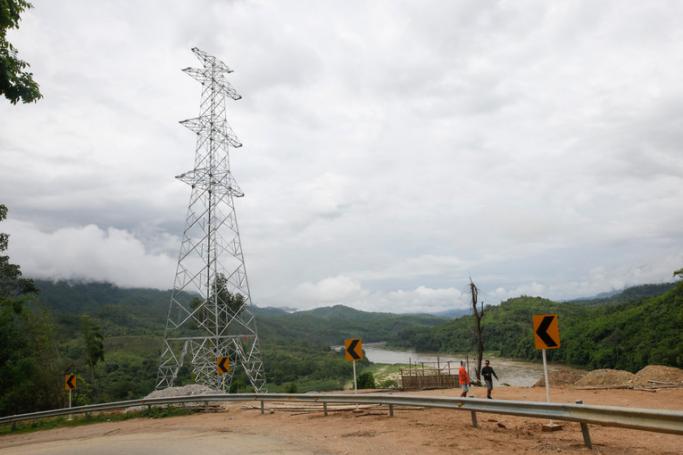The World Bank’s Board of Executive Directors has approved a $350 million credit from the International Development Association (IDA) to increase the output and efficiency of power generation and improve the resilience of Myanmar’s electricity system to climate change and disasters, according to a press release.
The Board also approved $110 million in additional financing for the Essential Health Services Access Project, implemented nationwide since 2015.
Myanmar needs to double its current installed power generation capacity over the next five to seven years to achieve universal electricity access by 2030. The Myanmar Power System Efficiency and Resilience Project will finance the upgrade to the Ywama gas-fired power plant, improving the availability and reliability of electricity services to consumers in the Yangon region. Investments in the power plant and in transmission infrastructure will free-up electricity supply in the rest of the country and will remove capacity constraints to enable more households to connect.
The project also contributes to Myanmar’s climate change mitigation and adaption commitments under the Paris Agreement. By using highly efficient technology, the project will help reduce greenhouse gas emissions per unit of electricity produced and investments in the power network will improve the system’s preparedness against climate change and disasters.
“Myanmar has the lowest electrification rate in South East Asia with only 50 percent of households connected to the public grid. This project will help close the power supply gap in an affordable and environmentally sustainable way, thereby removing one of the key constraints to achieving Myanmar’s goal of universal electricity access by 2030,” said Mariam Sherman, World Bank Country Director for Myanmar, Cambodia and Lao PDR.
The Government of Myanmar adopted the National Electrification Plan in 2014 to achieve universal access to sustainable electricity services by 2030, drawing on World Bank analytical support provided through the National Electrification Project (NEP). To date, the NEP has delivered electricity access to 2 million people and to schools, rural health clinics and community centers by extending the public grid in over 5,000 rural villages and delivering Solar Home Systems and renewable energy mini-grids in 7,200 villages throughout the country.
Access to Quality Health Services
The additional financing for the Myanmar Essential Health Services Access Project (EHSAP), consisting of a $100 million IDA credit and a $10 million Global Financing Facility (GFF) grant, will continue to support the Ministry of Health and Sports (MOHS) to increase access to quality essential health services, with a focus on maternal, newborn, and child health.
Since 2015, EHSAP has supported over 12,000 primary healthcare facilities across the country, ranging from township hospitals to the sub-rural health centers, with monthly funds to improve service delivery at these critical health facilities. The project strengthens the quality of healthcare by building skills of frontline health workers. It also aims to improve the regularity and systematic approach of healthcare supervision visits and the efficiency and responsiveness of public finance through financial trainings and financial data system modernization.
The additional finance will support primary healthcare infrastructure in some of the most socio-economically disadvantaged townships so that they are fully functional for essential service delivery and to scale up activities to strengthen the health system, including pandemic preparedness and response, which will support inclusion of health service delivery for all people in Myanmar.
“We highly appreciate the World Bank and Global Financing Facility’s additional finance for the Essential Health Services Access Project. It provides vital support in reaching the goal of our National Health Plan 2017-2021 to extend access to essential health services of good quality for all people in Myanmar,” said Union Minister for Health and Sports Dr. Myint Htwe. “It moreover contributes to the objective of the Myanmar Sustainable Development Plan to reach universal health coverage in a pro-poor manner.”
COVID-19 Response
In the fight against COVID-19, funds under EHSAP are also being mobilized to assist capacity building and operational costs to intensify surveillance and testing activities in all states and regions, establish a functioning information and reporting system for all suspected cases, facilitate engagement with basic health staff and Ethnic Health Organizations for community surveillance, disseminate guidelines to health staff and community volunteers, and develop public Information, education and communication materials.
The World Bank has provided a $50 million loan for the Myanmar COVID-19 Emergency Response Project to help Myanmar fill a critical gap in its contingency plan to urgently increase hospital preparedness and surge capacity in order to reduce the spread of COVID-19, protect health workers, and treat patients.
This project will also receive an $8 million grant from the World Bank Group’s Global Pandemic Emergency Financing Facility (PEF). The PEF is intended to provide financial support to IDA-eligible countries in case of major multi-country disease outbreaks. The PEF grant for Myanmar will support the surge response in the health sector, with special attention on benefiting the most vulnerable groups and communities in conflict- affected areas and ethnic health providers.
World Bank Group COVID-19 Response
The World Bank Group, one of the largest sources of funding and knowledge for developing countries, is taking broad, fast action to help developing countries strengthen their pandemic response. We are supporting public health interventions, working to ensure the flow of critical supplies and equipment, and helping the private sector continue to operate and sustain jobs. We will be deploying up to $160 billion in financial support over 15 months to help more than 100 countries protect the poor and vulnerable, support businesses, and bolster economic recovery. This includes $50 billion of new IDA resources through grants and highly concessional loans.












